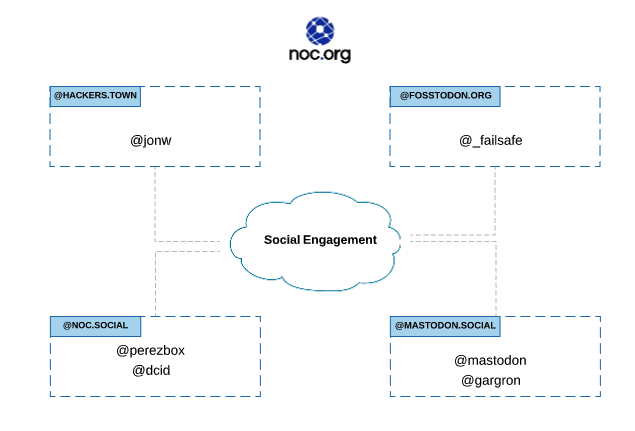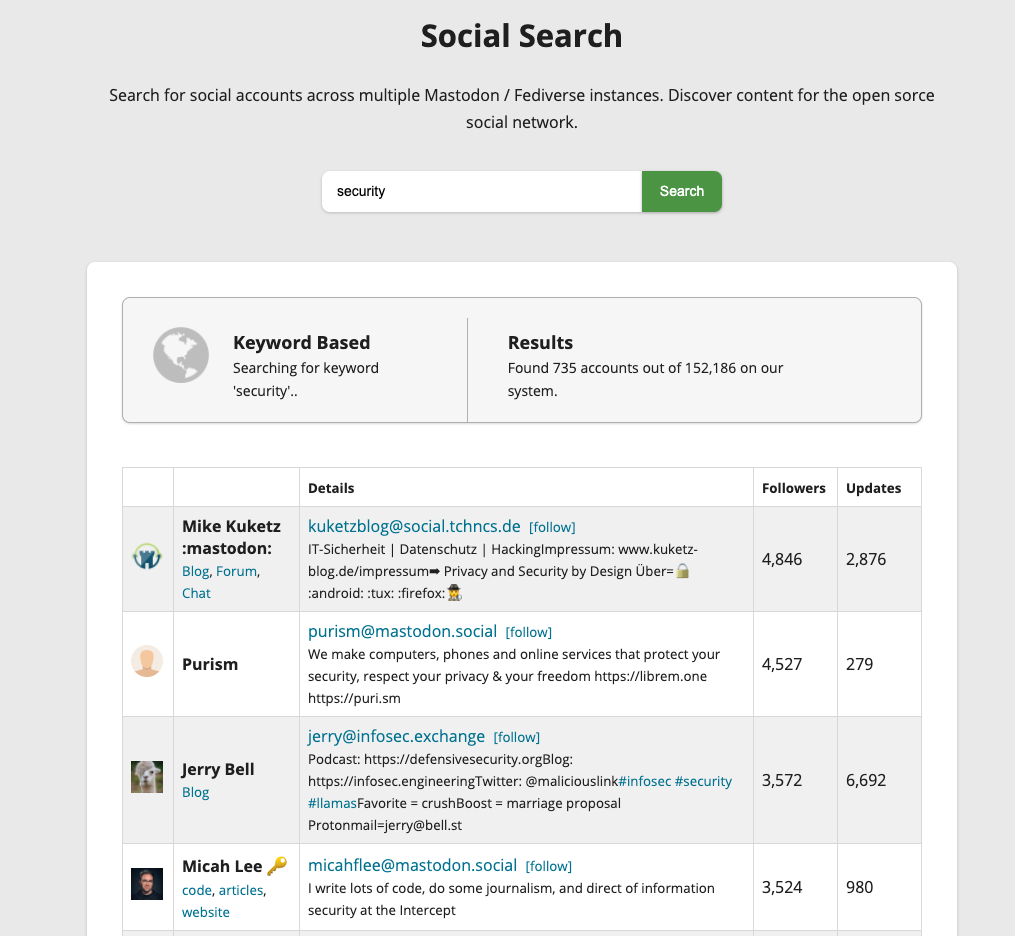Decentralizing Social Platforms
The past few years I have grown more disenfranchised with closed-platforms, specifically social platforms. This idea that a conglomerate is built on our information, our data, is wrong. It provides a warm fuzzy to say that social frameworks exist not to abuse our data, our content, but the reality is it does very little beyond that when push comes to shove.
In more recent years we have seen the abuse of data like what we saw with Facebook and Cambridge Analytica in 2018, or more recently, the gross oversteps social platforms have taken to become arbiters of truth. What about those unfortunate few whose voices are silenced, banned? To many this might seem like a statistical anomaly, but for those that into that group it’s a tough reality.
This doesn’t even begin to explore the invasion of privacy that has yet to be proved, or fully understood, but experienced by many, when it comes to advertisements.
Ever have a conversation with a friend in person, only to have it pop up on your Instagram, Twitter, or Facebook feed?
A Decentralized Social Platform
The past few years have been pivotal years for social platforms. They have shown us a lot about society, and human nature. They have also demonstrated how integral they are to our social, and digital, foundations and identities.
It’s no longer, “hey, have you heard of X social platform?” as much as, “hey, where can I find you online?” Having a social presence is becoming as synonymous as having an ID (yes, I’m talking in generalities here).
The past few months, specifically, have given us a sneak peak into the real power of social platforms, specifically the power that conglomerates yield with their closed-platforms.
The ability to silence or amplify. The power to disseminate. The power to make a choice for all, in the interest of a few. It’s built on the principle of social responsibility, but in reality it’s an individual, or group of individuals, their ideologies and beliefs, being imposed on the rest of society for the greater good. It’s this idea that we are smart, you are dumb, we know, you don’t. Let us protect you from those things you can’t handle because you can’t comprehend.
I don’t know why, but this just rubs me the wrong way.
The Mastodon Project
It’s why I have been giving a lot of thought to the idea of “how to decentralize social platforms.”
This idea of decentralization is not new.
The biggest example could best be illustrated in the world of open-source. There is no greater example of the power of open-source than to look at platforms like WordPress, Linux, and so many others. Look at the impacts they have had on the world?
The mastodon project is similar to the WordPress project. WordPress is an application that is out to democratize publishing. You can almost argue that Mastodon is a platform set out to democratize social engagement. In many ways, it can be the foundation to creating a decentralized ecosystem.
WordPress gives you the foundation from which you can build your themes, plugins, experiences. Mastodon does something very similar, but it goes one step further to create an interconnected network across the platforms.
Unlike WordPress, you don’t need to deploy your own Mastodon. Instead, you simply join something known as an *instance that’s build on Mastodon.
Think of each instance as your own little community. This community allows you to easily connect to other communities. Coincidently, if you are technical enough you can deploy your own mastodon based instance and join the network. That’s what we did. :)
Don’t know which one to use? No problem, Daniel created one anyone can use: https://noc.social/
Here is a very simple illustration of how it works.

What you see above are four, real, instances that you could easily join today: noc.social, hackers.town, fosstodon.org, or mastodon.social. You can easily join whichever instance you want, and immediately start engaging with others across other instances.
Are the features identical to what you’ve grown accustomed to in platforms like Facebook? Twitter? No. But they are functional and pretty close.
The biggest shortcoming we immediately saw was discoverability (i.e., where is everyone?). It’s why we built a search feature for noc.social. The real power is to engage with whomever you want, regardless of what instance they are using. Yes, eventually this needs to be more seamlessly integrated, but it’s functional.
For example, let’s say you are interested in security. Doing a simple search you find a number of users, threads, groups, instances that you might finding interesting:

New Frontiers are Scary
It’s not about whether we should have social platforms, but rather how we work in a world where social platforms are not owned by any one entity.
In a decentralized world, social platforms are not owned by any one individual or conglomerate and technically, as the user, you should have full control of your content, both what you say and what you see.
The person that is willing to say yes to experience is the person who discovers new frontiers. – John Templeton
It’s not a perfect setup, but it works. For me, a slight inconvenience is worth the idea of owning your own information and breaking the dependency that comes with closed platforms.
The real power, however, of an ecosystem like this hasn’t been fully realized yet. Which makes it so fascinating.
Imagine a world where governments had their own instances. No one entity could kill their voice. Instances could choose not to accept them, but it’s not a global instance. We saw that with a number of instances and Gab, but that’s a choice of the instance.
This same principle could be applied to communities. Imagine a WordPress, Drupal, Joomla instance? Imagine companies with their own instances for their employees or customers?
The ability to have a decentralized social platform is here, and the idea of shifting the power from a conglomerate to those that own the content is something we should consider.
Want to engage? Chat with me here: noc.social/@tony
